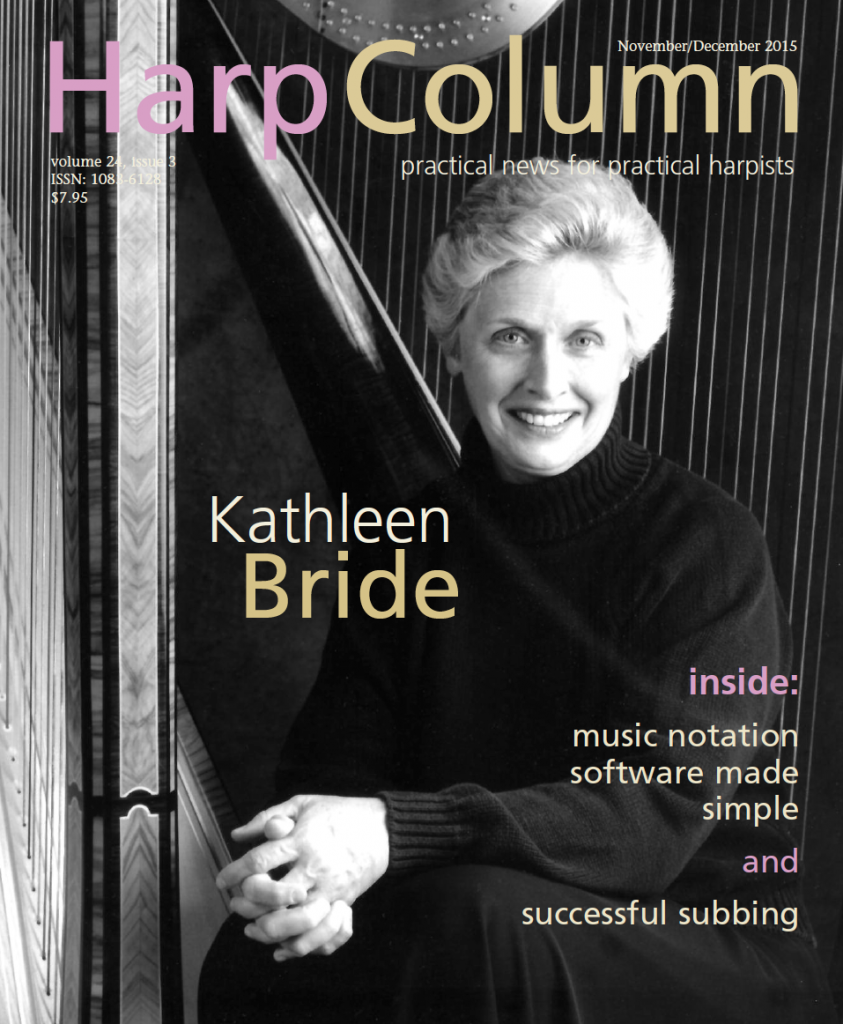Be prepared. Sometimes I think this official motto of the Boy Scouts should be the unofficial motto of harpists. Most of the work we do as harpists can be summed up by that one driving principal: be prepared. We arrive at gigs before everyone else to be prepared for show time. We practice etudes to be prepared with solid technique for any part thrown our way. We pack our gig bag with everything but the kitchen sink to be prepared for every conceivable contingency.
Kela Walton takes a long look at preparation in this issue in her article “Fitting In” on pg. 22. Walton examines the unique role of a sub or a second harpist and which skills are essential to do the job successfully. First on her list? Be prepared.
Anyone who has spent any time working as a sub or second is nodding their head in agreement. Most of what it takes to fit into an ensemble’s sound happens before we even arrive at the gig. Learning the music beforehand is a given—being a well-prepared harpist goes so much deeper. It means listening to recordings, studying different scores, marking your part thoroughly, practicing with different recordings at different tempos. I love one particular quote from harpist Catherine Case in the article: “I use as many tools and tricks as I can in my preparation so I have a lot to draw on,” she says. All of the work we do before the gig prepares us to be as flexible and responsive as possible at the gig.
If we really think about it, though, our preparation starts long before we even get that call for the gig. The bulk of our preparation for any gig we play happens when we are learning to play the instrument. It happens when we are students.
I remember reading a Harp Column interview with Nancy Allen, principal harpist with the New York Philharmonic and teacher at Juilliard, years ago where she was asked how she balanced a demanding career and raising her young daughter. “Treasure your practice years…afterwards you find out what kind of foundation you’ve built,” she advised. “If you’ve built a strong one, then you’ll be fine.” Allen went on to say she was able to maintain her career through life’s challenges because of “all those years of incredible work” she had already done.
Allen is not the only one at the top of her field to espouse the importance of preparation. One of Allen’s colleagues, Kathleen Bride, gives us a similar perspective in our interview with her in this issue (see “A Lasting Impression” on pg. 16). Her best advice from over four decades teaching at the collegiate level, first at the Manhattan School of Music and currently at the Eastman School of Music? Work hard and focus when you are a student because you won’t have the luxury of time to do that when you are out in the real world. “The four to six compressed years of undergraduate and graduate study are the most important of your professional life,” she says.
Essentially, we spend our entire lives in preparation—first, going deep to lay a foundation of technique, repertoire, and historical perspective, and then going wide to develop the diverse tools and skills we need to be successful in a rapidly evolving music world. You know, I think we could teach the Boy Scouts a thing or two about being prepared. •






